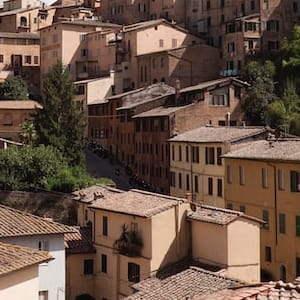top end of town: Idiom Meaning and Origin
What does ‘top end of town’ mean?
The idiom "top end of town" refers to the wealthiest or most influential part of a city or community.

Idiom Explorer
The idiom "upper-crust" refers to the highest social class or the wealthiest and most privileged people in society. It implies a sense of elitism and prestige.
The idiom "upper crust" refers to the highest social class or the most privileged group within a society.
The idiom "top of the line" means something that is of the highest quality or the best in its category.
The idiom "top of mind" means something that is constantly thought about or remembered, being of utmost importance or priority.
The idiom "top notch" means something that is of the highest quality or excellence.
The idiom "top it off" means to add the finishing touch or complete something, often in a positive or satisfying way.
The idiom "top drawer" means something of the highest quality or highest rank.
The idiom "top dollar" means to pay the highest possible price for something. It is often used to describe an expensive purchase or a salary at the highest end of the pay scale.
The phrase "top dog" is an idiom that means to be the most powerful or dominant in a particular situation or group. It often refers to someone who is in the highest position of authority or who is consistently the best at something.
Elite Domination
The idiom "top end of town" is an Australian English expression that refers to the most powerful and affluent individuals or groups in society. It is commonly used to describe those who hold high positions in business, politics, or other influential fields. This idiom draws upon the idea that the "top end" represents the uppermost, exclusive part of a town, while the "town" symbolizes the broader community.
The origins of this idiom are unclear, and there is limited information available about its exact etymology. However, it is believed to have emerged in the first half of the 20th century in Australia. The idiom reflects the hierarchical structure of society, where those at the top enjoy privileged positions and wield significant influence. It highlights the division between the elite and the rest of the population, emphasizing the power dynamics within a community.
The figurative meaning of "top end of town" revolves around wealth, status, and influence. It suggests a concentration of economic and political power in the hands of a select few. This idiom conveys the notion of exclusivity, as those at the top are seen as separate from and superior to the rest of society. It implies that decisions and policies made by the "top end" have a far-reaching impact on the community, shaping its direction and opportunities.
While the idiom is most commonly used in Australia, its themes and implications transcend regional boundaries. Similar expressions exist in other English-speaking countries, such as the "big end of town" in the United States, "top of the line" in the United Kingdom, and "Main Street" in Canada. These idioms allude to the same concept of a privileged, influential class at the pinnacle of society.
Although the idiom "top end of town" carries a negative connotation for some, it is important to note that it is not inherently pejorative. It is a descriptive term that highlights the disparities and power imbalances in society. By using this idiom, speakers engage in a critical examination of the structures and dynamics that perpetuate inequity. It prompts us to question the concentration of wealth and power, urging a consideration of the implications for social cohesion and collective well-being.
The "big end of town" is an idiom commonly used in the United States to describe the wealthiest and most influential individuals or groups in society. It shares similarities with the Australian expression "top end of town", emphasizing the concentration of power and influence among a select few. Both idioms draw attention to the disparities and divisions within society, shedding light on the unequal distribution of wealth and resources.
The idiom "top of the line" is another expression that aligns with the concept of the "top end of town". It refers to products or services that are of the highest quality or most advanced in their field. Just as the "top end of town" represents the pinnacle of social and economic status, the "top of the line" signifies excellence and superiority. These idioms convey the idea that the best and most desirable options are found at the highest levels.
"Main Street" is an idiom commonly used in Canada to refer to the central or downtown area of a town or city. While it has a more literal meaning than the other idioms discussed, it shares a connection with the "top end of town" in terms of representing a hub of activity and influence. Main Street is often associated with a town's commercial district and is a focal point for businesses and economic activity. It can be seen as a microcosm of the broader community, with power and wealth concentrated in its core.
The idiom "top end of town" represents the social, economic, and political elite in Australia. Its origins are uncertain, but it encapsulates the idea of a select group of individuals who hold significant power and influence. This idiom serves as a reminder of the inequalities and divisions within society, prompting us to reflect on the consequences of concentrated power and privilege. It encourages a critical examination of the structures that shape our communities while leaving room for further exploration and discussion.
Example usage
Examples of how the idiom "top end of town" can be used in a sentence:
- Many politicians seem more interested in serving the top end of town than addressing the needs of everyday citizens.
- The exclusive luxury spa at this hotel is aimed at catering to the top end of town.
- The top end of town was well represented at the high-society charity gala.
More "Business" idioms



